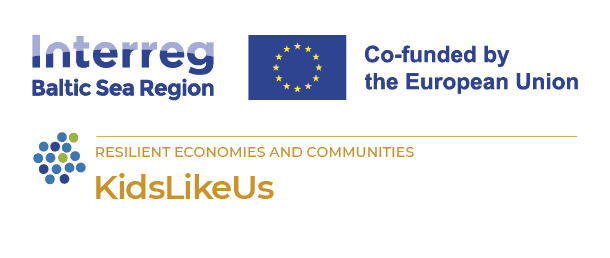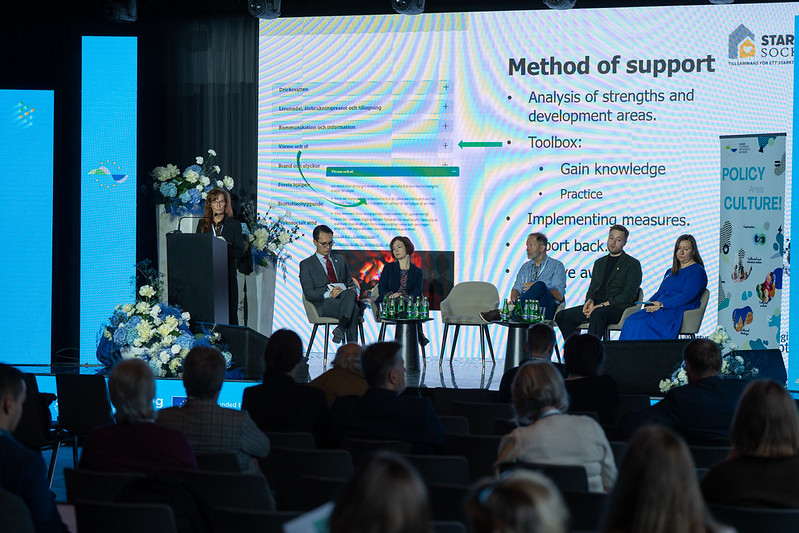
KidsLikeUs presented at the EUSBSR Annual Forum 2025 in Sopot
06 November 2025
Last week, we had the honor of participating in the EUSBSR Annual Forum 2025 — Securing the Future: Stronger Together – Building Stability in Times of Uncertainty. The event was held on 29–30 October in beautiful Sopot, Poland, to ask the hard question: what concrete actions will create lasting stability and prosperity for our communities and generations to come, across geopolitical, economic, social, and environmental dimensions.
The EUSBSR Annual Forum is more than a conference — it’s a crossroads where ideas become action. As one of the largest pan-Baltic gatherings, it draws policymakers, local leaders, researchers, NGOs, and citizens from across the region to collaborate, share lessons, and co-create solutions. Over two days of high-level plenaries, panel discussions, workshops, and informal networking, participants discussed practical ways of strengthening resilience and cohesion across societies.
A highlight for us was the session “The Soft Core of Hard Security – Community Cohesion and Agency in Times of Security,” organized by the Coordinators of the Policy Area Culture. This session reframed security: not only as borders, defense, and institutions, but as everyday community bonds, emotional well-being, and the capacity of ordinary people — children, parents, elders, teachers, and volunteers — to respond to change with creativity and care. The session invited participants to consider how civic agency, creative education, and intergenerational engagement strengthen the social fabric that holds societies together in turbulent times.
Beata Fabisiak, coordinator of the KidsLikeUs project, shared inspiring examples from the project’s hands-on work with young people. Her presentation reminded everyone that creativity is a practical tool for resilience — not just an optional extra. Through dozens of activities, KidsLikeUs has shown how simple, art-centered practices can strengthen social ties and well-being, cultivate agency, and help people stay present and hopeful in uncertain times. It also highlights the need for a reframed policy thinking: if stability is the goal, investment in community-level creativity and well-being must be part of the toolbox. Creative activities produce measurable social returns — improved mental health, greater civic participation, stronger intergenerational ties, and enhanced adaptive capacity. These are precisely the soft assets that buffer societies from shocks and sustain long-term cohesion.
These examples are proof that strengthening social cohesion is a strategic element of regional stability. When children, families, and communities learn to create together, to listen, and to support one another, they build the social glue that carries societies through crises and build resilient communities.
The takeaway from the panel: Building stability is not only the task of diplomats and defense planners: it’s also the everyday work of every one of us, finding ways to connect and care for one another. When creativity, care, and community agency are recognized as strategic assets, policy becomes more humane — and more effective. Our KidsLikeUs project shows that small, imaginative acts — a painting session, a community build, a recorded message of encouragement — can ripple outward into greater wellbeing and social strength. Those tools for resilience are already at our fingertips; the task now is to put them to work at scale.
All inspiring projects presented at the session underlined that creativity and community belong at the heart of security and that resilience is built in living rooms, classrooms, and community centers as much as in ministries and military headquarters.








